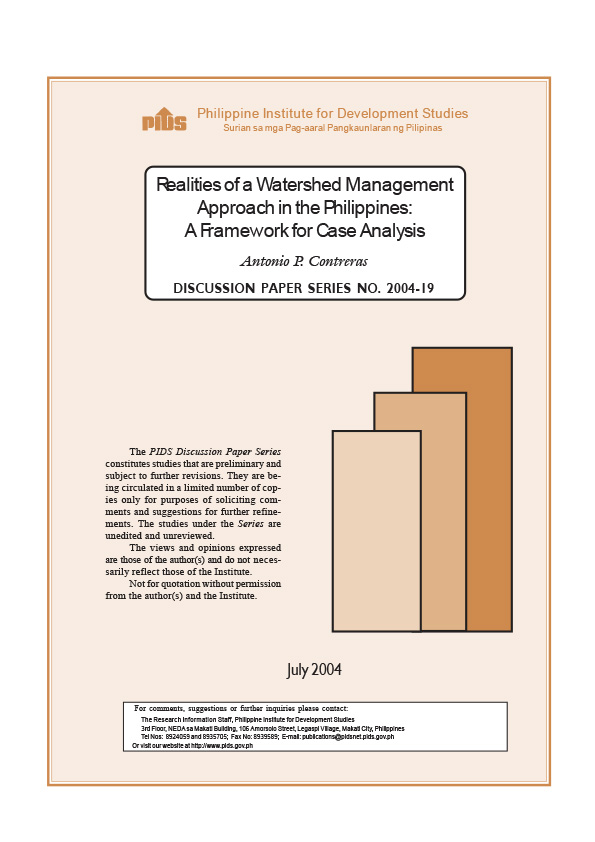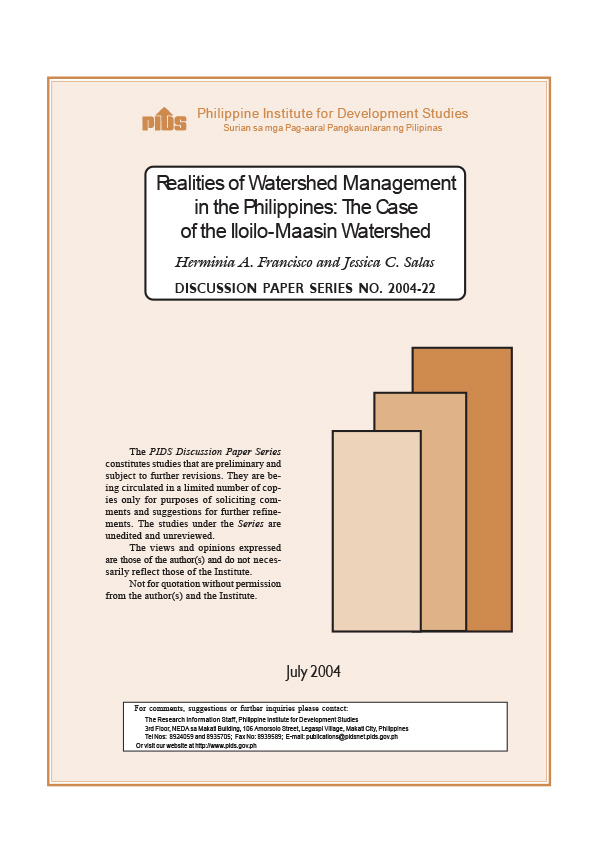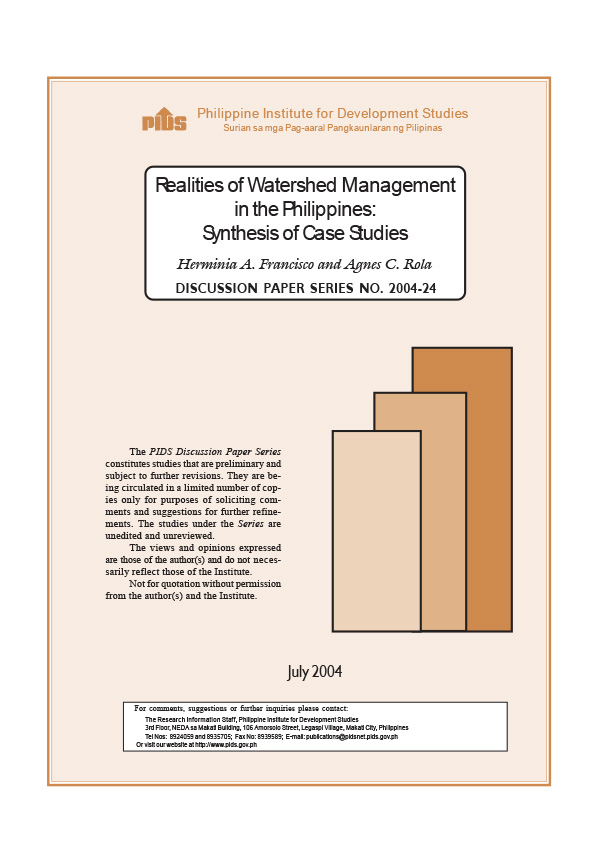The effectiveness and capacity by which society manages its watershed resources is mediated by different factors, namely: economic considerations—financial capital; technical and administrative capacity—intellectual capital; social governance capacity—social and institutional capital; and legal framework—political capital. The levels within which these factors can be analyzed include the macro-level, that is, the national level; and the micro-level that operates at watershed management unit. There are three foci of inquiry with regards to attempts to adopt a watershed-based approach to water resources management. First, there is a need to look into the conditions that affect the linkages between watershed resource management and the sustainability of governance and production systems. Second, there is a need to analyze the manner governance mechanisms can be “directed” towards improving livelihood sustainability and the maintenance of watershed resources. Finally, there is a need to assess the processes in which governance and production mechanisms are transformed as forest-based communities within watershed areas are integrated further into mainstream market and political structures. Corollary to this is an evaluation of the implications of these transformations in scale to watershed management, particularly to managing the resource using the watershed approach.













